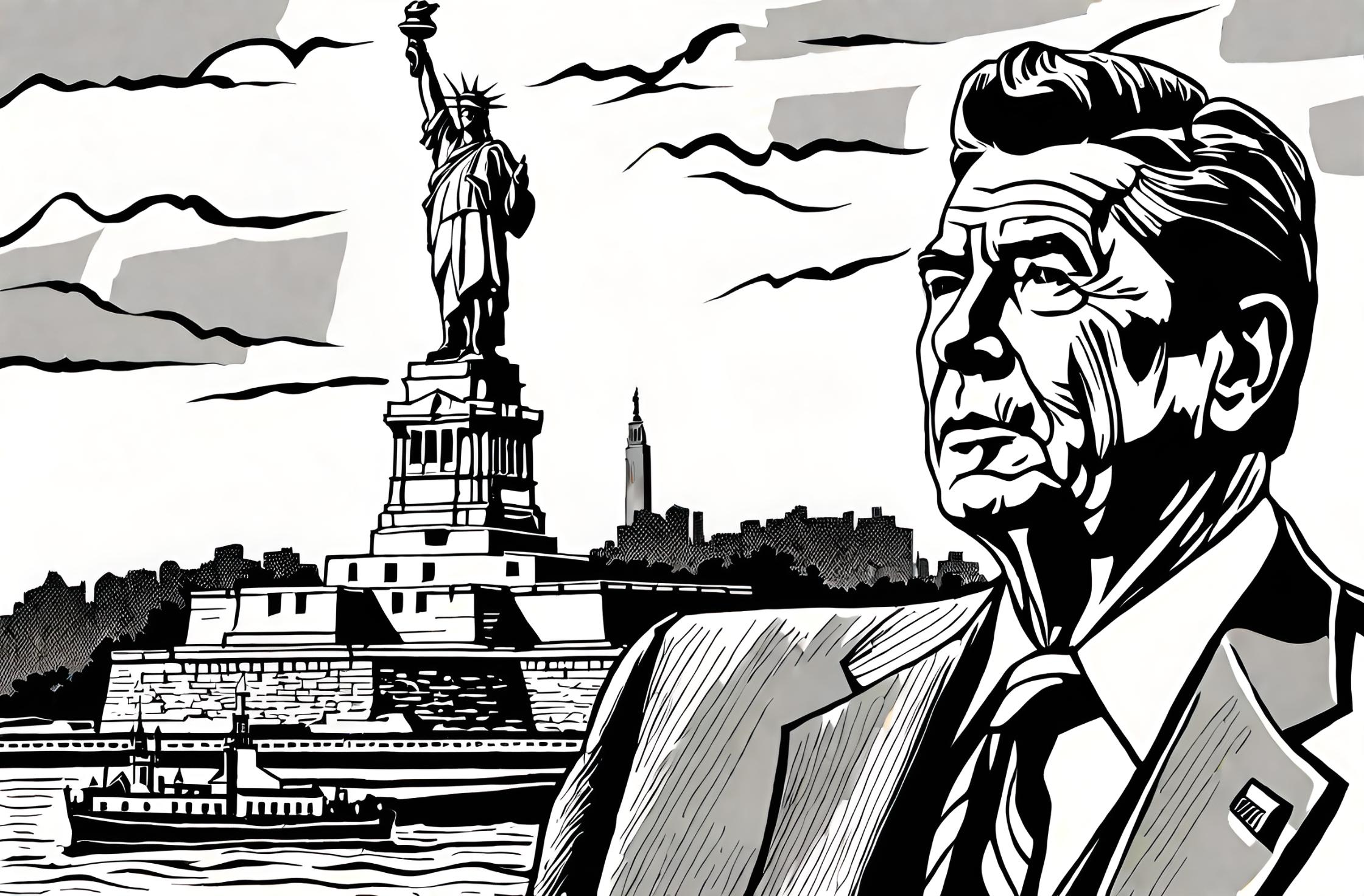Flashback to July 3
American History

1982
John Hinckley is found not guilty by reason of insanity for the attempted assassination of President Ronald Reagan
Read moreOn June 21, 1982, one of the most shocking events in American history took place – the attempted assassination of U.S. President Ronald Reagan. The assailant, John Hinckley Jr., was found not guilty by reason of insanity, sparking a nationwide debate on mental health and the criminal justice system. This article delves into the details of the event, the trial, and the aftermath.
John Hinckley Jr. was a troubled young man who developed an unhealthy obsession with actress Jodie Foster. In an attempt to impress her, he hatched a plan to assassinate President Reagan outside the Washington Hilton Hotel. On that fateful day, Hinckley fired six shots, with one bullet striking the president in the chest.
Reagan was quickly rushed to the hospital, where doctors discovered that the bullet had punctured his lung and lodged near his heart. The president’s calm demeanor in the aftermath of the incident earned him admiration and respect from the public. Meanwhile, law enforcement officials swiftly apprehended Hinckley at the scene.
The subsequent trial of John Hinckley Jr. captivated the nation. The defense argued that Hinckley was mentally ill and not responsible for his actions at the time of the shooting. The prosecution, on the other hand, sought to prove that Hinckley was fully aware of his actions and should be held accountable.
After weeks of testimonies and analyses of Hinckley’s mental state, the jury ultimately found him not guilty by reason of insanity. This verdict shocked many, as it seemed to suggest that a person could commit a heinous crime and escape punishment simply due to mental illness.
The aftermath of the trial brought about significant changes in the legal system’s approach to insanity defenses. The public outcry sparked debates on whether the law should be amended to ensure stricter accountability for criminals with mental health issues. This case highlighted the need for a delicate balance between protecting the rights of the accused and safeguarding society.
Additionally, the attempted assassination of President Reagan led to a reevaluation of presidential security measures. The incident highlighted the vulnerability of public figures and prompted the Secret Service to implement stricter protocols to prevent future attacks. These additional security measures were aimed at minimizing the potential impact of such incidents on the President and the nation as a whole.
Furthermore, the event shed light on the issue of mental health care in the United States. Hinckley’s case sparked discussions about the adequacy of mental health services and the need for better care and early intervention programs. Many argued that by addressing mental health concerns more effectively, similar incidents might be prevented in the future.
In the years following the trial, John Hinckley Jr. has been subject to strict conditions and supervision. Although he has gradually been granted more freedom, including supervised visits to his family, the public scrutiny surrounding his case remains strong.
The attempted assassination of President Reagan by John Hinckley Jr. on June 21, 1982, shocked the nation and sparked significant discussions and changes. Whether it be reevaluating the insanity defense, enhancing presidential security measures, or addressing the nation’s mental health care system, this event left a lasting impact on American society. It serves as a reminder of the delicate balance between justice, mental health, and the safety of public figures.
We strive for accuracy. If you see something that doesn't look right, click here to contact us!
Sponsored Content

US President Ronald Reagan…
On July 3, 1986,…

French and Indian War:…
On 7/3/1754, George Washington,…

Americans capture Fort Erie,…
On July 3, 1814,…

US Civil War: The…
Discover the historic significance…

The asteroid labeled as…
On July 3, 2006,…

Pony Express arrives in…
On July 3, 1861,…

